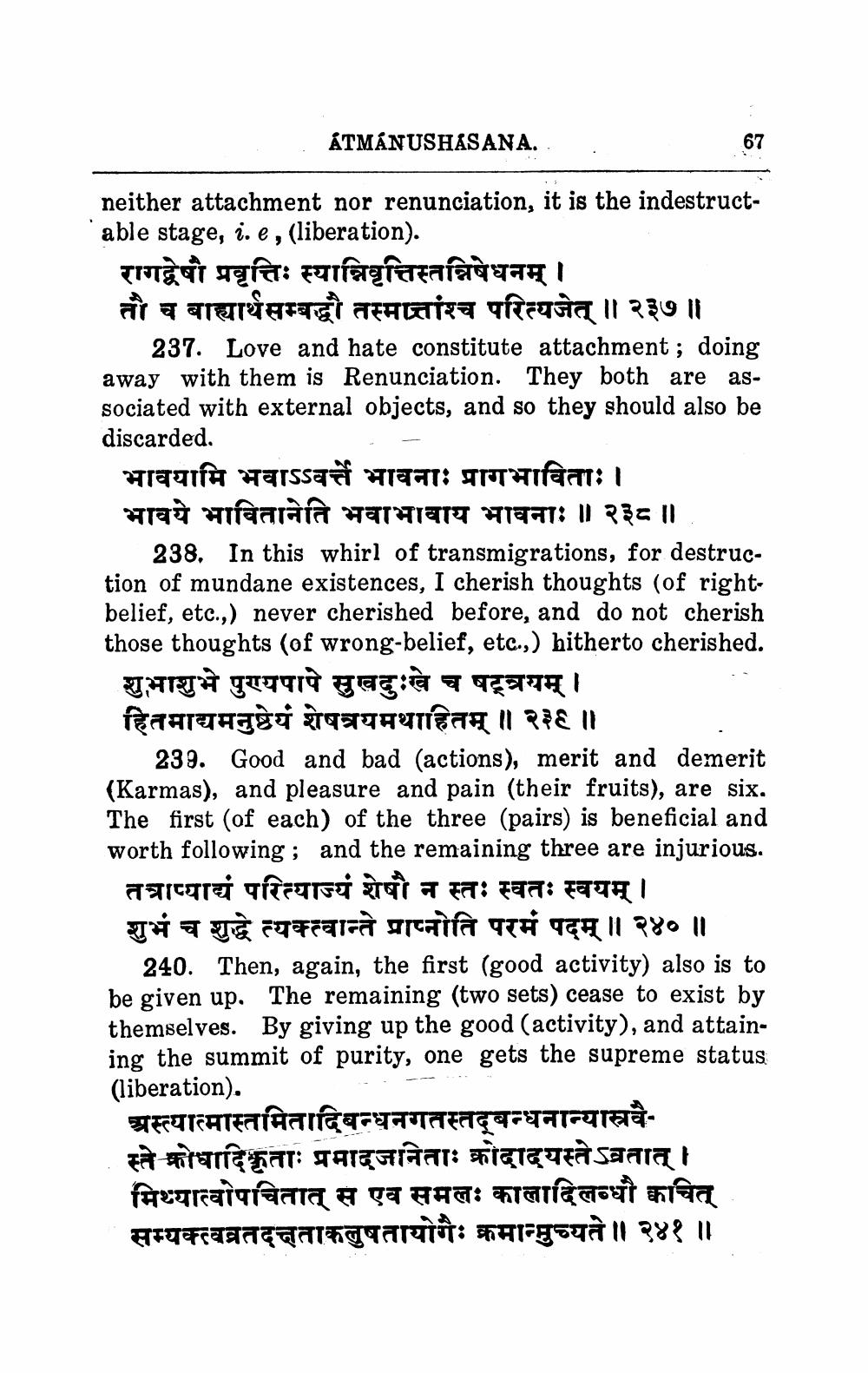________________
ATMÁNUSHASANA.
neither attachment nor renunciation, it is the indestruct
able stage, i. e, (liberation).
रागद्वेषौ प्रवृत्तिः स्यान्निवृत्तिस्तन्निषेधनम् ।
तौ च बाह्यार्थसम्बद्धौ तस्मात्तांश्च परित्यजेत् ॥ २३७ ॥
67
237. Love and hate constitute attachment; doing away with them is Renunciation. They both are associated with external objects, and so they should also be discarded.
भावयामि भवाऽऽवर्त्ते भावनाः प्रागभाविताः । भावये भावितानेति भवाभावाय भावनाः ॥ २३८ ॥
238. In this whirl of transmigrations, for destruction of mundane existences, I cherish thoughts (of rightbelief, etc.,) never cherished before, and do not cherish those thoughts (of wrong-belief, etc., ) hitherto cherished. शुभाशुभे पुण्यपापे सुखदुःखे च षट्त्रयम् । हितमाद्यमनुष्ठेयं शेषत्रयमथाहितम् ॥ २३६ ॥
239. Good and bad (actions), merit and demerit (Karmas), and pleasure and pain (their fruits), are six. The first (of each) of the three (pairs) is beneficial and worth following; and the remaining three are injurious. तत्राप्याद्यं परित्याज्यं शेषौ न स्तः स्वतः स्वयम् । शुभं च शुद्धे त्यक्त्वान्ते प्राप्नोति परमं पदम् ॥ २४० ॥
240. Then, again, the first (good activity) also is to be given up. The remaining (two sets) cease to exist by themselves. By giving up the good (activity), and attaining the summit of purity, one gets the supreme status (liberation).
अस्त्यात्मास्तमितादिबन्धन गतस्तद्बन्धनान्यास्रवेस्ते क्रोधादिकृताः प्रमादजनिताः क्रोदादयस्तेऽवतात् । मिथ्यात्वोपचितात् स एव समलः कालादिलब्धौ कचित् सम्यक्त्वव्रतदक्षता कलुषतायोगेः क्रमान्मुच्यते ॥ २४१ ॥




